calsfoundation@cals.org
African American Legislators (Nineteenth Century)
In Arkansas, between 1868 and 1893, at least eighty-seven African American men were elected to and served in the Arkansas General Assembly. Reconstruction policies and amendments to the U.S. Constitution outlawed slavery, redefined citizenship to include freed slaves, and granted universal male suffrage regardless “race, color, or previous condition of servitude.” In Arkansas, these changes led to the election of Black men to state and local offices. These legislators and other officeholders were primarily elected from areas with large Black populations––Arkansas’s plantation regions in the east and southwest as well as urban areas like Little Rock (Pulaski County), Pine Bluff (Jefferson County), and Helena (Phillips County).
Historians are still piecing together the lives of these men; nevertheless, research shows that the elected men were a diverse group. Many had been free, living in the North before the Civil War, while others were former slaves in Arkansas or nearby states. Leaders in their communities, most appear to have received an education and were capable, literate, and ambitious men. They came to prominence as educators and ministers, but their ranks also held former Union soldiers, newspaper editors, merchants, farmers, lawyers, and at least one doctor.
Early in Reconstruction, a number of important leaders emerged. Most prominent among the eight Black delegates to the 1868 Arkansas Constitutional Convention were William H. Grey, James T. White, and James W. Mason. All three were educated and later served in the General Assembly. Of the three, only Mason was born in Arkansas. The son of Arkansas’s largest planter and an enslaved woman named Cynthia, Mason received an education at Oberlin College in Ohio and in Paris, France. In 1867, at Sunnyside in Chicot County, he became the first known Black postmaster in the country. Grey and White, born free in Washington DC and Indiana, respectively, came to Helena in 1865. Grey was a merchant and minister in the African Methodist Episcopal Church and later became the first Grand Master of the Most Worshipful Grand Lodge (Colored) of Free and Accepted Masons of Arkansas. White, a Baptist minister, headed the church’s mission work among the freedmen in Helena and later edited newspapers like the Arkansas Review. During the 1868 convention, these three, along with the other Black delegates, defended the right of Black men to vote, a key provision for readmission to the Union.
During the initial period of Reconstruction from 1868 to 1874, Arkansans elected thirty-five Black men to forty-five positions in the General Assembly. In 1873, the number of Black men in the legislature peaked at twenty-one—seventeen in the House and four in the Senate. The men took an active role within the Republican Party supporting civil rights, public education, economic development, and efforts to maintain law and order—especially combating intimidation of African Americans by the Ku Klux Klan.
In the post-Reconstruction years, in which Democrats “redeemed” or regained political power, Black men continued to serve in the General Assembly, albeit in smaller numbers. While there were efforts to intimidate Black voters, Arkansas remained relatively moderate. Democratic “redeemer” Governor Augustus H. Garland set the tone when he was elected in 1874, throwing his support behind the state’s 1873 Civil Rights Act, access to public schools, and the right to vote. Garland also encouraged the “fusion principle” in Black-majority Delta counties. Fusion essentially shared power between Republicans and Democrats by dividing the political tickets between the parties. The arrangements also had the effect of quelling potential political violence.
With few exceptions, nineteenth-century Black legislators aligned with the Republican Party. The year 1879 appears to be the first year that any Black legislators were willing to break with the Republicans. Four had been elected on the Greenback ticket and one as a Democrat. The early 1880s also saw a few Greenbackers elected, but fusion and Republican alliances with Greenbackers and members of the Agricultural Wheel seem to have kept Black voters and candidates within the Republican fold. The final exception in the nineteenth century is Benjamin F. Adair, who served in the 1891 General Assembly as a Democrat.
The passage of the 1891 Election Law by the Democratic-controlled General Assembly was the first of a series of laws that disenfranchised Black voters. Black Republicans like Senator George W. Bell and Representative John Gray Lucas voiced their objections to the 1891 bill, but the party was unable to defeat the measure. The 1891 law, under the guise of election reform, removed local control of elections and reforms to ballot printing intimidated illiterate voters. A law requiring a poll tax receipt in order to vote came in 1893. These measures suppressed Black voter turnout and effectively ended political participation and representation for over a quarter of the state’s population. No African American was elected to the state legislature again until 1972.
Arkansas Constitutional Convention of 1868
| Delegate | Lifespan | From | Other Service |
| William H. Grey | 1829–1888 | Helena | See House, Senate |
| Monroe E. Hawkins | ca. 1832–after 1880 | Lewisville | See House |
| Thomas P. Johnson | ca. 1828–1906 | Little Rock | |
| James W. Mason | 1842–1874 | Sunnyside, Chicot County | See Senate |
| William Murphy | ca. 1810–1887 | Pine Bluff | See House |
| W. Henry Rector | ca. 1841–1892 | Little Rock | |
| Richard Samuels | 1844–1878 | Washington | See House |
| James T. White | ca. 1840–1892 | Helena | See House, Senate |
Arkansas State Senate
| Legislator | Lifespan | Party | From | Service/Other Service |
| George Walthal Bell | ca. 1855–1927 | Republican | Desha County | 1891, 1893 |
| Richard A. Dawson | 1848–1896 | Republican | Jefferson County | 1873, 1874–Extra; See House |
| William H. Grey | 1829–1888 | Republican | Phillips County | 1874–1875; See Convention, House |
| Samuel H. Holland | ca. 1844–1886 | Republican | Chicot County | 1873, 1874–Extra |
| William H. Logan | 1850/1855–after 1900 | Republican | Chicot County | 1887, 1889 |
| James Worthington Mason | 1842–1874 | Republican | Chicot County | 1868–1869, 1871; See Convention |
| Anthony L. Stanford | 1830–1883 | Republican, Greenback (1879) | Phillips County | 1877, 1879 |
| James T. White | ca. 1840–1892 | Republican | Phillips County | 1871, 1873; See Convention, House |
| Ruben B. White | 1845/1848–1886 | Republican | Pulaski County | 1873, 1874–Extra |
| John Willis Williams | 1835–after 1873 | Republican | Phillips County | 1874–1875; See House |
Arkansas House of Representatives
| Legislator | Lifespan | Party | From | Service/Other Service |
| Benjamin F. Adair | 1853–1902 | Democrat | Pulaski County | 1891 |
| James M. Alexander Sr. | ca. 1815–1871 | Republican | Phillips County | 1871 |
| Isaac George Bailey | 1846–1914 | Republican | Desha County | 1885 |
| Conway Barbour | 1818–1876 | Republican | Lafayette County | 1871 |
| Austin Barrow | 1838–after 1880 | Republican | Phillips County | 1871 |
| Peter H. Booth | ca. 1851–1927 | Republican | Jefferson County | 1893 |
| Levi B. Boston | ca. 1846–after 1888 | Republican | Jefferson County | 1874–1875 |
| Joseph H. Bradford | ca. 1854–after 1885 | Republican | Mississippi County | 1885 |
| Joseph B. Brooks | ca. 1840–after 1900 | Republican | Lafayette County | 1885 |
| Charles F. Brown | 1840–after 1873 | Republican | St. Francis County | 1873 |
| Cornelius “Neal” Brown | 1845–after 1873 | Republican | Pulaski County | 1873 |
| Crockett Brown | 1856–after 1900 | Republican | Lee County | 1877 |
| Hal B. Burton | 1851/1854–after 1910 | Republican | Jefferson County | 1887 |
| John H. Carr | 1849–after 1900 | Republican | Phillips County | 1889, 1891, 1893 |
| Berry Coleman | 1845–after 1910 | Republican | Phillips County | 1877, 1874–1875 |
| William L. Copeland | ca. 1846–1885 | Republican | Crittenden County | 1873, 1874–1875 |
| Lawrence C. Crute | ca. 1844–1930 | Republican | Chicot County | 1873 |
| Richard A. Dawson | 1848–1896 | Greenback | Jefferson County | 1879; See Senate |
| Sebron W. Dawson | 1857–1927 | Republican | Jefferson County | 1889, 1891 |
| Jacob N. Donohoo | 1854–1917 | Republican | Phillips County | 1877, 1887, 1889, 1891 |
| Anderson Ebberson | 1843–1916 | Republican | Jefferson County | 1877, 1881 |
| Nathan E. Edwards | 1855–1908 | Republican | Chicot County | 1893 |
| Edward Allen Fulton | 1833–1906 | Republican | Drew County | 1871 |
| William “Willis” Hines Furbush | 1839–1902 | Republican, 1873; Democrat, 1879 | Phillips County, 1873; Lee County, 1879 | 1873, 1879 |
| Isaac Gillam | 1840–1904 | Greenback | Pulaski County | 1879 |
| Ed Glover | 1851–after 1900 | Republican | Jefferson County | 1885 |
| William “Willis” E. Gray | 1848–after 1900 | Republican | Pulaski County | 1881 |
| William H. Grey | 1829–1888 | Republican | Phillips County | 1868–1869; See Convention, Senate |
| Tony/Toney Grissom | 1841/1850–after 1885 | Republican | Phillips County | 1873, 1874–1875 |
| Jeff Haskins | 1820–1884 | Republican | St. Francis County | 1871 |
| Ferdinand “Ferd” Havis | 1846–1918 | Republican | Jefferson County | 1873 |
| Monroe E. Hawkins | ca. 1832–after 1880 | Republican | Lafayette County | 1868–1869, 1873, 1874; See Convention |
| Ned Hill | ca. 1845–after 1875 | Republican | Jefferson County | 1874–1875 |
| Daniel Hunt | 1828/1834–1887 | Republican | Hempstead County | 1868–1869 |
| William B. Jacko | 1857–after 1922 | Republican | Jefferson County | 1885, 1887 |
| Ed Jefferson | 1861–after 1900 | Republican | Jefferson County | 1887, 1889 |
| Adam R. Johnson | 1825/1830–after 1873 | Republican | Crittenden County | 1871, 1873 |
| Henry “Hal” Augustus Johnson | 1855–1914 | Republican | Chicot County | 1891 |
| John H. Johnson | 1840–1885 | Republican | Woodruff County | 1873 |
| Green Hill Jones | 1842–1924 | Republican | Chicot County | 1885, 1889 |
| Thomas R. Kersh | 1844/1847–1916 | Republican | Lincoln County | 1885, 1887 |
| Daniel W. Lewis | 1851–1932 | Republican | Crittenden County | 1883 |
| George W. Lowe | 1847–1920 | Union Labor/Republican | Monroe County | 1889, 1891 |
| John Gray Lucas | 1864–1944 | Republican | Jefferson County | 1891 |
| William A. Marshall | 1843–after 1873 | Republican | Hempstead County | 1873 |
| L. J. Maxwell | 1851–after 1894 | Republican | Jefferson County | 1874–1875 |
| Americus Mayo | 1820/1834–1891 | Republican | Monroe County | 1871 |
| Charles Howard McKay | 1858– after 1913 | Republican | Jefferson County | 1893 |
| Abraham H. Miller | ca. 1851–1913 | Republican | Phillips County | 1874–1875 |
| William Murphy | ca. 1810–1887 | Republican | Jefferson County | 1873, 1877; See Convention |
| Marshall M. Murray | 1856–1916 | Republican | Lafayette County | 1883 |
| Hugh L. Newsome | 1849–ca. 1905 | Republican | Chicot County | 1887 |
| Sandy Shepard Odum | 1852/1858–193? | Republican | Crittenden County | 1887 |
| William C. Payne | ca. 1841–1898 | Greenback/Republican(?) | Jefferson County | 1879, 1881 |
| Burns Polk | 1820–after 1875 | Republican | Lee County | 1874–1875 |
| Carl R. Polk | 1841–1926 | Republican | Jefferson County | 1871, 1881 |
| Patrick T. Price | 1845/1847–1890 | Republican | Lee County | 1877 |
| Henry H. Robinson | 1847–after 1879 | Republican | Phillips County | 1873 |
| James A. Robinson | ca. 1836–after 1875 | Republican | Desha County | 1871, 1874–1875 |
| John C. Rollins | 1832/1835–ca. 1879 | Republican | Ashley County | 1873 |
| Anderson Louis Rush | 1838–1879 | Republican | Pulaski County | 1868–1869 |
| Granville Ryles | 1831–1909 | Greenback/Republican | Pulaski County | 1883 |
| Richard R. Samuels | ca. 1844–1878 | Republican | Hempstead County | 1868–1869; See Convention |
| Francis “Frank” H. Sawyer | 1831/1835–after 1880 | Republican | Lincoln County | 1877 |
| Samuel H. Scott | ca. 1843–after 1902 | Republican | Jefferson County | 1885 |
| Archie/Archer Shepperson | 1850–1901 | Republican | Hempstead County | 1873 |
| Rusty Sherrill | 1832/1835–after 1883 | Republican | Jefferson County | 1883 |
| George H. W. Stewart | 1839–after 1900 | Republican | Phillips County | 1873 |
| Green W. Thompson | 1847–1902 | Republican | Pulaski County | 1889 |
| George E. Trower | 1855–after 1910 | Republican | Faulkner County | 1887 |
| Blackstone Waterhouse | 1840/1844–after 1914 | Republican | Jefferson County | 1883 |
| George W. Watson | 1861–after 1910 | Republican | Crittenden County | 1891 |
| John W. Webb | 1824–after 1900 | Republican | Chicot County | 1871 |
| Reuben C. Weddington | 1866–after 1910 | Republican | Desha County | 1891 |
| Francis “Frank” W. White | 1855–after 1930 | Greenback/Republican | Pulaski County | 1883 |
| James T. White | ca. 1840–1892 | Republican | Phillips County | 1868–1869; See Convention, Senate |
| Henry W./N. Williams | 1844/1850–after 1891 | Republican | Lincoln County | 1889, 1891 |
| John Willis Williams | 1835–after 1873 | Republican | Phillips County | 1873; See Senate |
| James Wofford | 1843/1846–after 1884 | Republican | Crittenden County | 1877 |
| Sam L. Woolfork | 1858–1934 | Republican | Jefferson County | 1889, 1891 |
| William H. Young | ca. 1844–after 1880 | Republican | Jefferson County | 1871, 1883 |
For additional information:
Branam, Chris W. “‘The Africans Have Taken Arkansas’: Political Activities of African Americans in the Reconstruction Legislature.” Arkansas Historical Quarterly 73 (Autumn 2014): 233–267.
———. “‘The Africans Have Taken Arkansas’: Political Activities of African-American Members of the Arkansas Legislature, 1868–73.” MA thesis, University of Arkansas, 2011. Online at https://scholarworks.uark.edu/etd/90/ (accessed July 6, 2022).
Gatewood, Willard B., Jr. “Negro Legislators in Arkansas, 1891: A Document.” Arkansas Historical Quarterly 31 (Autumn 1972): 220–233.
Graves, John William. Town and Country: Race Relations in an Urban–Rural Context, Arkansas, 1865–1905. Fayetteville: University of Arkansas Press, 1990.
Moneyhon, Carl H. “Black Politics in Arkansas during the Gilded Age, 1876–1900.” Arkansas Historical Quarterly (Autumn 1985): 222–245.
Wintory, Blake. “African–American Legislators in the Arkansas General Assembly, 1868–1893: Another Look.” In A Confused and Confusing Affair: Arkansas and Reconstruction, edited by Mark Christ, 86–145. Little Rock: Butler Center Books, 2018.
Wintory, Blake J. “African-American Legislators in the Arkansas General Assembly, 1868–1893.” Arkansas Historical Quarterly 65 (Winter 2006): 385–434.
Blake Wintory
Thompson’s Station, Tennessee


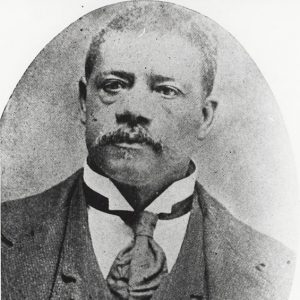

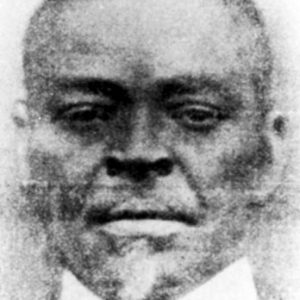
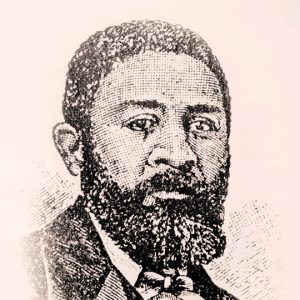
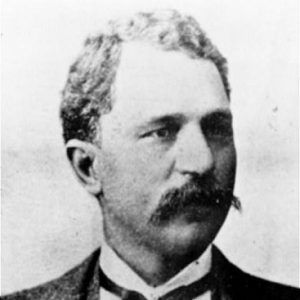
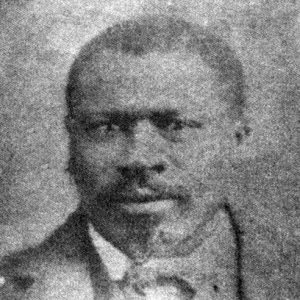
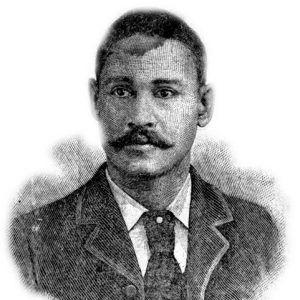
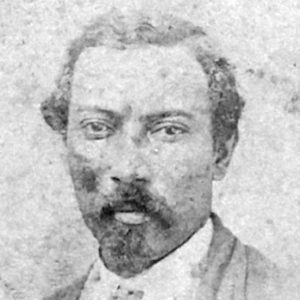
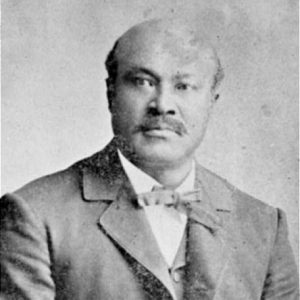





Comments
No comments on this entry yet.